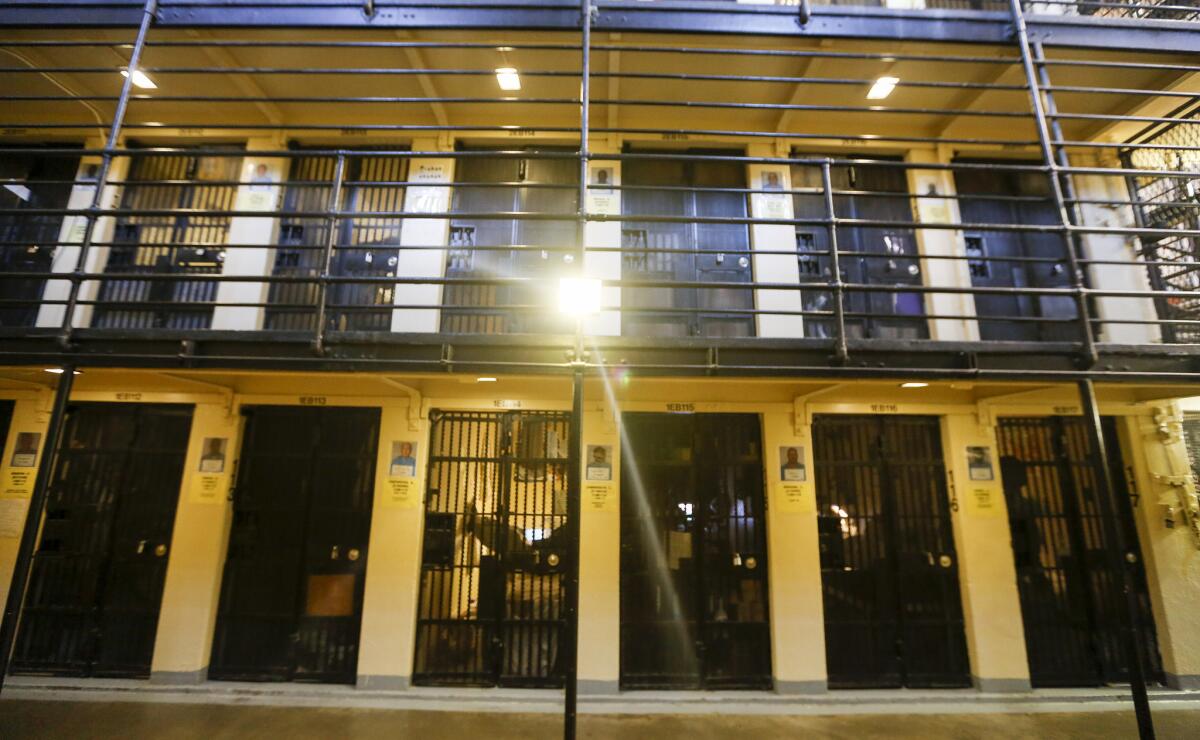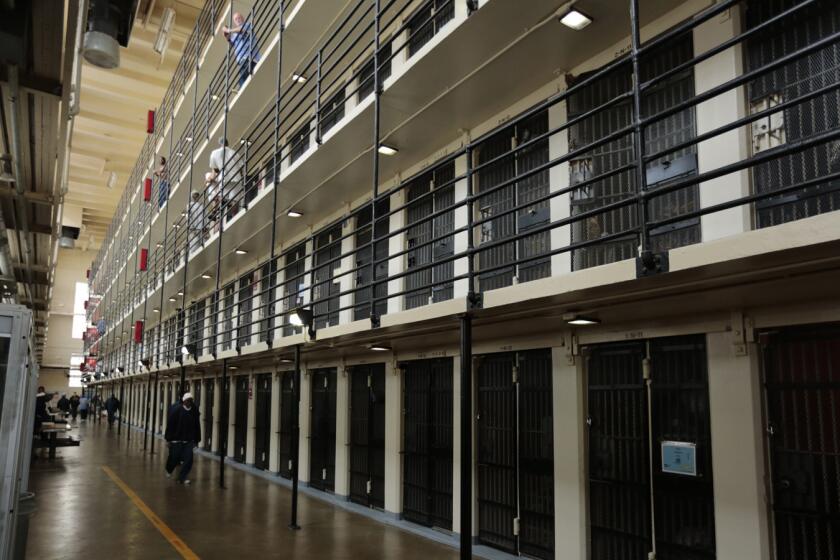Editorial: Prop. 66 promised to speed up executions. It hasn’t. We should abolish the practice

- Share via
The federal government is set to resume executions this week, reminding California voters about the fateful choice they made four years ago when faced with two competing death penalty initiatives. One would have abolished the practice and converted all existing death sentences to life without parole. The other would have radically revised the judicial process to speed up the pace of appeals and, voters were told, put more people to death faster.
Voters, unfortunately, took the speed-it-up option. But things haven’t worked out the way the proponents promised they would.
Proposition 66, which narrowly passed 51% to 49%, faced a nearly immediate legal challenge. Although the California Supreme Court upheld most of its complicated requirements in August 2017, the justices invalidated a key section that would have forced the courts to dispose of all death penalty appeals within five years.
It took 18 more months to craft regulations, including creating regional panels of defense lawyers to handle capital cases. But so far, only three lawyers, two of them from out of state, have applied and been approved. None have been assigned cases because Proposition 66, while calling for a more robust capital defense bar, didn’t include funding, and the state Legislature hasn’t allocated extra money to pay for it.
The state budget for the Habeas Corpus Resource Center, set up in 1998 to represent indigent death row inmates with appeals, caps staff at 34 lawyers, far too few to handle the demand. Of the 720 inmates on death row, 366 are still waiting for a habeas lawyer to be assigned; 72 of them have been waiting for more than two decades.
The only way to prevent catastrophic loss of life inside the state prison system during the pandemic is to reduce its population.
Even before Gov. Gavin Newsom declared a moratorium on the death penalty in March 2019, California’s “machinery of death,” as Supreme Court Justice Harry Blackmun once described capital punishment, remained rusted and immobile. Because of earlier court challenges, California has not executed anyone since 2006. In fact, the state put to death only 13 people after resuming capital punishment in 1978; an additional 137 condemned inmates have died of other causes, including old age and suicide. Since June 24, six of them have died of suspected COVID-19 infections.
Those lengthy delays constitute cruel and unusual punishment in the eyes of federal District Court Judge Cormac J. Carney (whose 2014 ruling was overturned on separate grounds) and the Inter-American Commission on Human Rights, which recently issued a report asserting that imprisoning people in the U.S. for extended periods of time under threat of execution violates fundamental human rights. According to a Death Penalty Information Center analysis of the human rights report, “California, with 429 prisoners on death row for 20 or more years, had the most human rights violations of any state.” The center also counts more than 165 people around the country who have been exonerated since 1975 of the murders that sent them to death row.
The death penalty does not work. Not as a deterrent, not as a moral act, not as a governmental function, and certainly not under the mandates of Proposition 66. The criminal justice system is too prone to human error and manipulation to rely on for a life-or-death decision. It’s also expensive, costing the state $55 million a year just to handle capital appeals before Proposition 66 added more requirements.
Meanwhile, the public is growing increasingly ambivalent about capital punishment. And that’s not just liberals. Since Jan. 1, 2018, California juries have sentenced only 11 people to death, down from 34 death sentences in the preceding three years. Clearly, our cultural standard of decency for weighing the death penalty is evolving away from the barbaric practice.
You can’t have it both ways: Pressure U.S. public schools to reopen, then say our schools don’t need financial help to reopen safely.
Over the last several weeks, the nation has undertaken a painful reckoning of the racial inequities that we, as a society, have let continue for far too long, particularly in criminal justice. Growing recognition that we must fundamentally rethink our notions of crime and punishment extends to the death penalty as well. Nevertheless, the state Assembly failed this year to pass ACA 12, a constitutional amendment initiative introduced by Assemblyman Marc Levine (D-San Rafael) that would have put the ban on the ballot. Legislators ought to revive it in the next session, and Newsom should throw his considerable political weight behind the effort.
Given the abject failures of the death penalty, the infuriatingly disproportionate weight that lands on people of color and the poor, and the broken promises of Proposition 66, California voters should be given another chance to vote it away. And then do so.
More to Read
A cure for the common opinion
Get thought-provoking perspectives with our weekly newsletter.
You may occasionally receive promotional content from the Los Angeles Times.












